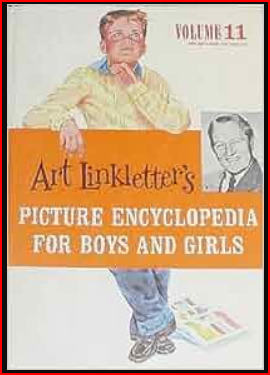… encyclopedias?

Long before the direction “Just Google It”, there was another way to get information for research or essays that you were doing.
Going to the library and getting the encyclopedia. It was an amazing resource and had everything.

I wonder if this might be foreign to today’s students but it wasn’t just one book. It was a collection of books based upon the letter of the topic you were searching. So, if you were searching the War 0f 1812, grabbing the “W” off the bookshelf would do it.
That is, if it was there.
You could never actually check out a volume from the encyclopedia. Often, we would have “research periods”, say in History where we met as a class in the library to research our topics. We had a couple of encyclopedia collections there but if the first people to the library grabbed “W”, you might have to change your topic on the fly. Of, the sneakiest of all things, don’t reshelve the resource properly. Since we were all alphabetical people, if it wasn’t in order, it might as well be gone. Or, waiting for the person who tucked it away somewhere else for their personal use.
Encyclopedias were expensive and so you typically didn’t have a copy in your house. It was either to the school library or the town library.
My Mom tried her best to help the cause. Through the local grocery store, you could buy a volume of Art Linkletter’s Picture Encyclopedia for Boys and Girls periodically and we could use that. Of course, we had the first volume and the rest just followed when purchased. I don’t ever recall them being terribly deep or helpful but I used to read my way through it like a book.
There are all kinds of them available on Etsy and Amazon if you’d like a nostalgic trip.

Of course, none of that applies today. I can’t remember the last time I saw a physical encyclopedia book or even one being used. Instead, teachers and teacher-librarians teach students how to search on the internet.
The advantage is that if your research goes to somewhere with a different letter, you just click a link and go rather than having to return to the collection of encyclopedia books and hope that the book that your researched “linked to” was there!
The advantage is that the printed encyclopedia was generally recognized as a truthful resource. What you read could generally be accepted as true. Today, you can find just about any answer to a question – good, bad, or indifferent – and you’re on your own to validate its truthfulness.
So, for a Sunday, your thoughts?
- do you have an encyclopedia at home other than one on your computer?
- does your school have printed encyclopedias?
- do you remember the Art Linkletter Encyclopedia?
- what other encyclopedias can you name? Is there one specific for Canadian research? What do you do about reading levels?
- how do you know if what you find on the internet these days is truthful?
- can there be varying levels of truth?
- can you remember how you had to cite your references? How is that done these days?
- did you ever hide an encyclopedia volume so nobody else could find it?
- did you ever sneak a volume out of the library?
As always, I’d like to hear your thoughts about encyclopedias? Please let me know.
This is a regular Sunday topic around here. You can find the entire list of previous topics here. I have touched on books and libraries before. You can read it here.

Ah, the Encyclpedia! Fond memories…….and much more fun (and infinitely more accurate!) than Google or (to a lesser extent) Wikipedia. For a start, I don’t recall ever seeing anything remotely like a conspiracy theory or state propaganda on the ones I used to have at school and beyond. Sure, it took longer to find what you were after, but often went through other stuff to get there – a true journey of dicovery.
Happy days!